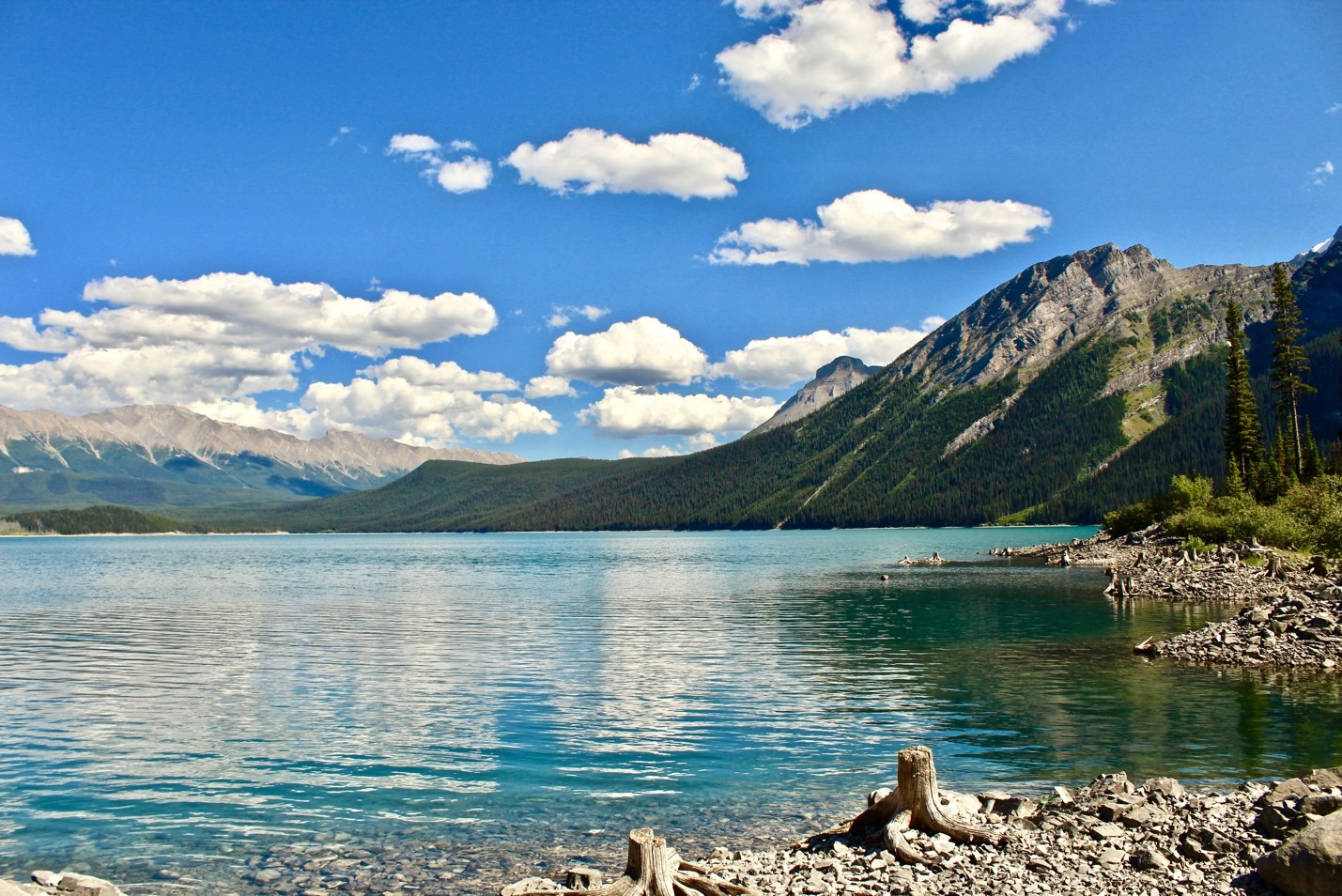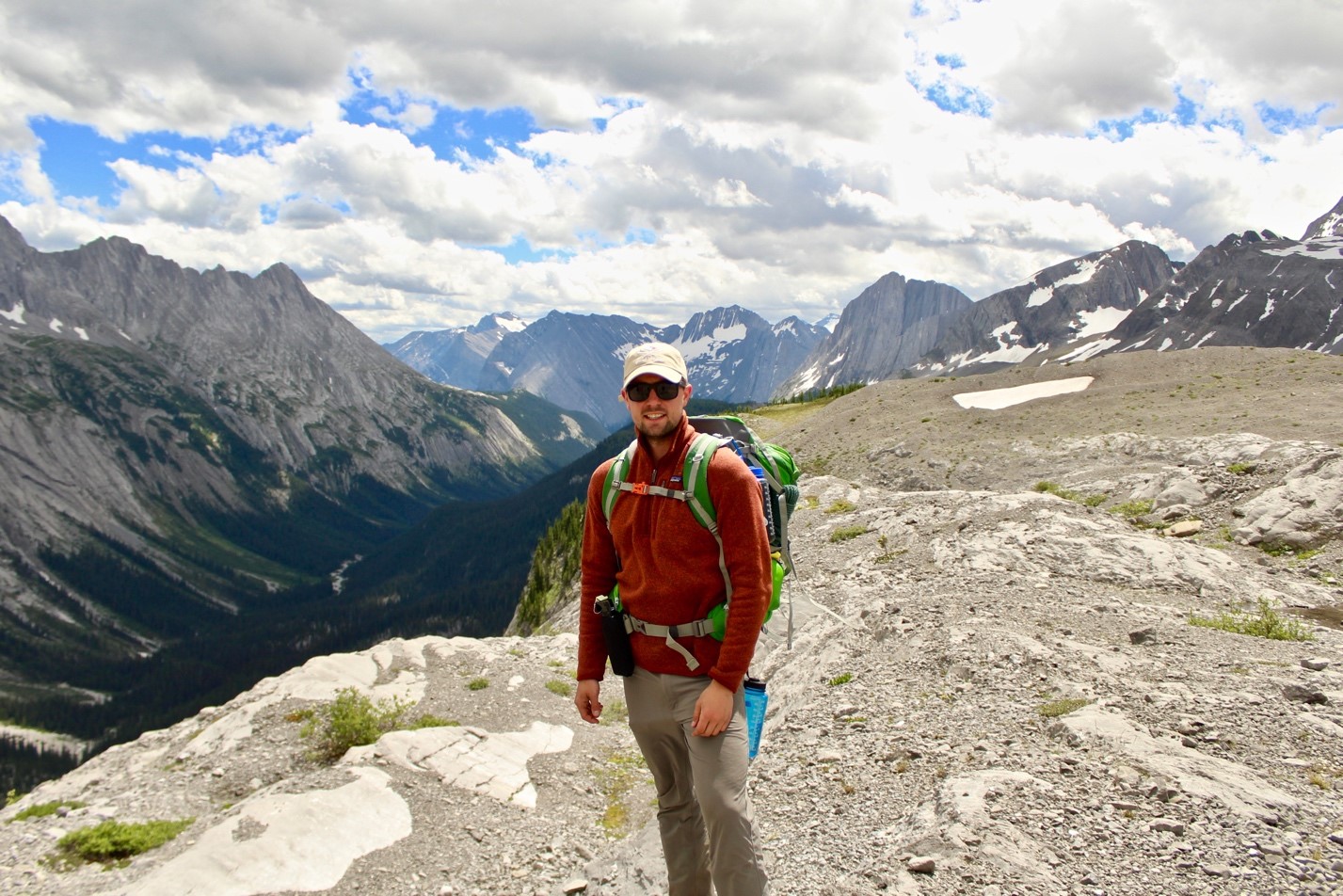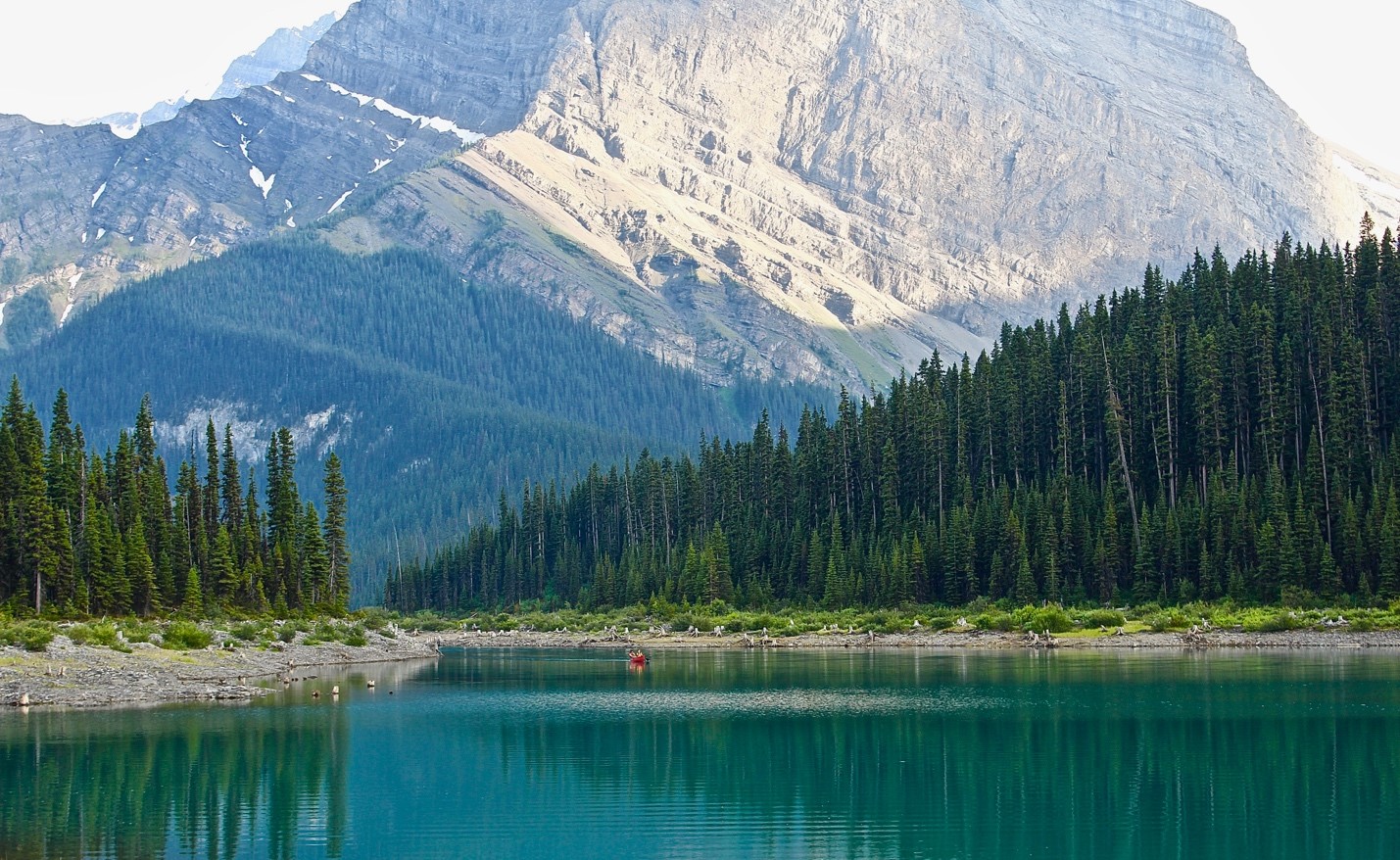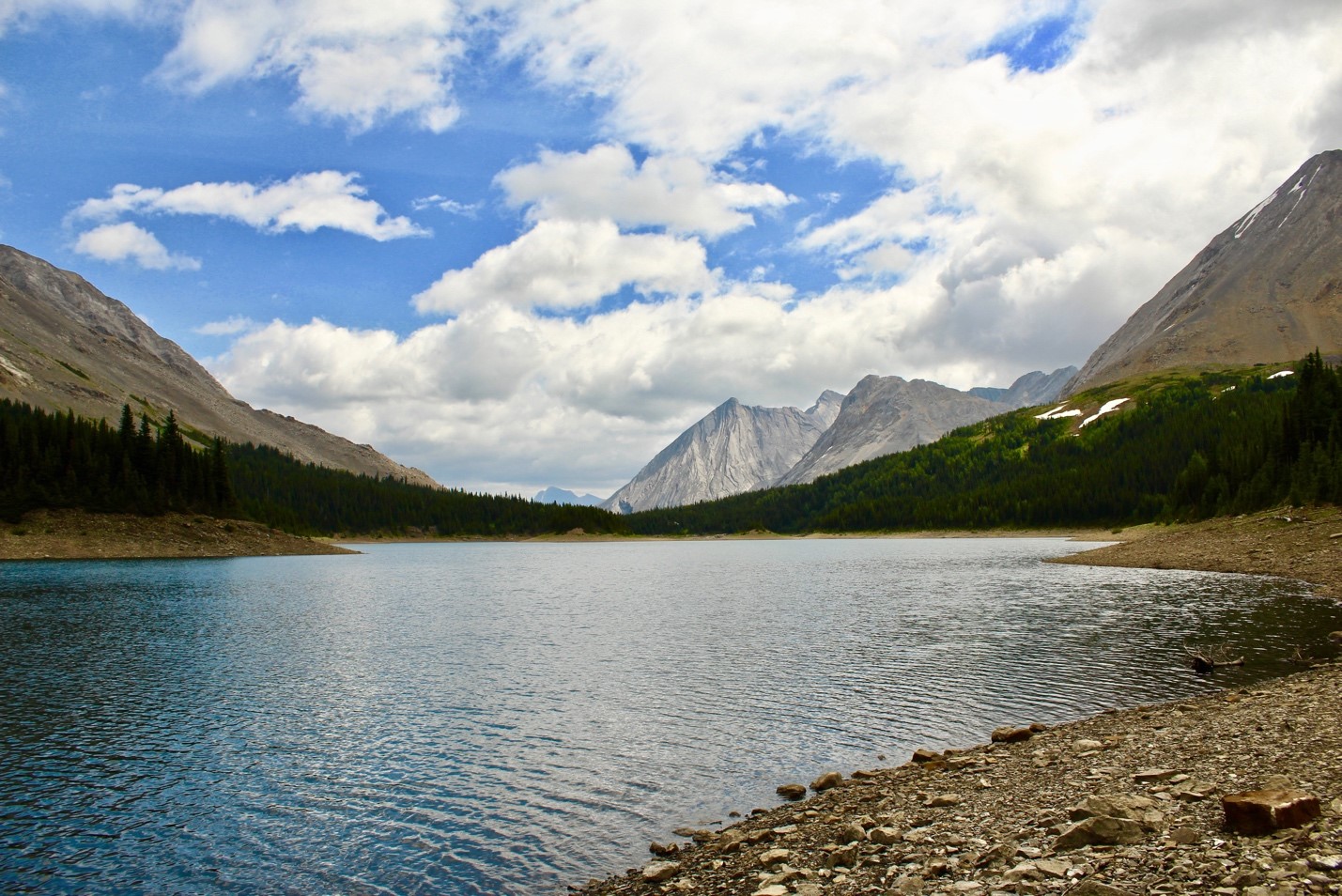

Route planning
I recently returned from a ten-day, 85-km hiking and backcountry camping trip in the Canadian Rockies, about 90 minutes southwest of Calgary. It was so enjoyable and the views were so magnificent! I went with three friends, one of which like myself, has life-threatening food allergies. We camped in the Peter Lougheed Provincial Park, about 30 minutes from any cell phone service so needless to say, the trip took a lot of preparation. We had to select our routes, campsites, gear, and safe food. I found that meal planning was surprisingly the most time-consuming part of the trip, especially for an adult with allergies. I have life-threatening allergies to peanuts, tree nuts, and all raw fruits and vegetables, so here’s a glimpse into my camping preparations:
Exit strategy
I am a very pragmatic individual, and since I have food allergies, I planned for the worst-case scenario. If I had an allergic reaction in the wilderness, I need to know how far I was from the nearest ambulance and hospital. This was important for our trip because we were so secluded, but I think it’s an important part of weekend camping as well. With appropriate meal planning and proper meal preparation hygiene, it is unlikely that an adult with an allergy will experience a reaction while camping, but knowing the closest healthcare facility is important because it can put one’s mind at ease. Before leaving on the trip we found that our furthest point from the trail head was 21-km and from the trail head we were 95-km from the Canmore General Hospital. We were also able to determine how many epinephrine auto-injectors to bring. Since we were quite far from healthcare services, we chose to bring a satellite phone as well, which gave us the flexibility to call for emergency services if the worst-case scenario occurred.
Overcoming previous fears
Mental preparation for this camping trip was especially difficult for myself because of a previous camping experience. In the summer of 2016, I was camping with two friends in Northern Ontario when we encountered a very large black bear. It was moving away from us into the woods, but was directly between us and the trail head. Minutes later I realized that I was having an allergic reaction. We had to get to the trail head to get to the car, but there was a bear in between us and our goal. I administered my auto-injector and we proceeded with caution towards the car, making as much noise as we possibly could to deter the bear. We made it to the car and arrived at the hospital nearly 45 minutes after my initial reaction, but not without tremendous anxiety. So the thoughts going through my head leading up to this big trip was…what if something like this happened in the Rockies?
New food exploration
I discovered my allergies in my early 20’s. I have a severe form of what’s called Oral Allergy Syndrome (OAS) and with this type of allergy, skin testing is not effective at elucidating allergens. I kept having allergic reactions to food I previously ate without concern. This method of uncovering allergens can be stressful because I felt that nothing was safe. Since discovering my allergies, exploring new foods has always been difficult. I used to avoid new foods altogether, but honestly that’s quite a boring way to live. So, I began incorporating new foods into my diet, trying them in safe places (in a doctor’s office, or at a hospital, or if you have easy access, at the allergist’s office), and now I try them at home with my epinephrine auto-injector in-hand. I felt that in the wilderness camping, I would be alright with my prepared food as long as I had my emergency plans in place (auto injector, satellite phone, and an escape route) since I only brought food that I was comfortable eating and 100% sure about.
Medication preparation
So, now that I had my escape route planned and the information about the closest healthcare facilities noted, I knew that the furthest I would be away from medical services at minimum was 12 hours hiking and 90 minutes driving. To be safe, I doubled this estimate, and I brought enough allergy medication for just over 24 hours. As well, we made sure that not only was each member of the group aware of my allergies, but each member knew what to do in case of an emergency.

Having fun
Once all the preparation had been complete, it was time to explore the Canadian Rockies. This trip was one of the most enjoyable experiences of my life! I swam in glacier waters, I saw many different kinds of wildlife including a grizzly bear and a large buck, I experienced some of the most glorious views from mountain tops, and really learned what it takes to hike and camp in the mountains. I spent 10 days with my closest friends, experienced highs and lows (literally and figuratively), and learned to work together. With the right preparation, weekend camping and backcountry camping can be very, very enjoyable experiences, even as an adult with allergies.
– Fraser K.

